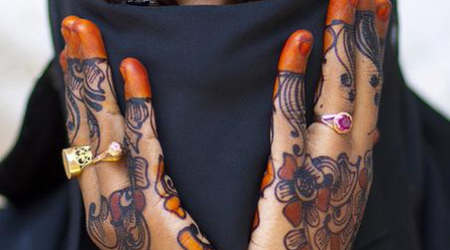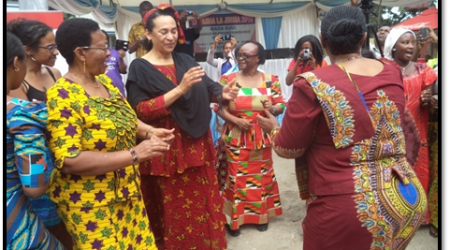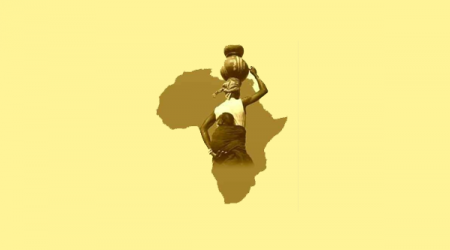The Kinondoni Files
- The Social Welfare Department in the Kinondoni District Commissioner’s office receives an average of 120 domestic violence cases per month. Over 45 per cent are new cases while the rest are ongoing cases.
- BAKWATA, the National Muslim Council of Tanzania, receives an average of 11 new domestic violence cases per month.
- The Tanzania Assemblies of God Church has started a training programme for parish volunteers to counsel families about domestic violence.
- The 95 respondents in a survey gave various reasons for Gender Based Violence (GBV); however, underlying those reasons is patriarchy; women’s low status in society; and women’s lack of access to resources like land; soft loans; and opportunity for upward mobility.
- Sexual abuse of children has been noted; however, families are reluctant to institute criminal proceedings because of the stigma practiced against a child who has been sexually abused.
- The faith based organizations are slowly becoming sensitized. This is illustrated by religious leaders advising women to seek the legal option against their perpetrators.
- There are less than 60 social welfare officers in Kinondoni district which has a population of over 2,000,000 people.
- The most common form of GBV is domestic violence.
- There isn’t enough legal aid or counselling centres for survivors of GBV.
- Women opt to stay in abusive relations because of poverty; and societal pressure.
- Families do not support women who take legal action against perpetrators of GVB.
- The Kinondoni Primary Court receives an average of 6-7 GBV cases per month.
- Women killing has been reported in Kinondoni district with the cases referred to the High Court.
- The recording system of GBV in Kinondoni Primary and District Court is comprehensive.
- The police at Oysterbay Police Station receive an average of 20-25 new complaints per month of GBV, mainly those of domestic violence. However, there is no follow-up as the women “reconcile” with their spouses/partners and refuse to give evidence.
- The Mwananyamala District Hospital receives GBV cases with women burnt by paraffin stoves; shoved and beaten; though the women lie by saying they had an accident.
A survey on domestic and sexual violence in Kinondoni has revealed that the problem exists. As elsewhere in the country the truth has been hidden out of fear among women, the victims, to bear the brunt of social and cultural stigma.
It is against this background that a lot has to be done particularly public education, to educate people on the issue of domestic and sexual violence. The tempo has to be maintained through media advocacy in order to achieve the desired results.
Respondents admit, for example, that child sexual defilement has existed for long but it has been kept a secret by parents. Women also do not report domestic violence cases for fear of violating traditional norms. This vicious circle has to be broken to liberate victims of GBV in our society.
Living from hand to mouth among a great number of women in Kinondoni has placed many women in the sad position of remaining silent on GBV. In the survey, respondents admit that women are worried over the fate of their husbands if they report the matter to the police. As a result, men have used this loophole to lure the women when they beat them by giving gifts like money; kanga; or gold chain/rings; as an apology to the women. This illustrates GBV is linked to poverty. 
During the survey conducted by this writer and the late Michael Mbaga in 2010, awareness on the issue was noted. For example, in wife beating, nearly 81 per cent of the respondents were aware that wife beating is wrong and should be condemned.
On defilement 84 per cent of the respondents said the matter was now being discussed in families in addition to the mass media which report on the issue accounting for 80.4 per cent of the awareness on the issue.
Similarly, in rape almost 70 per cent of the respondents were aware of the issue. This led to respondents during random interviews to call for special courts for VAW cases and review of existing laws to impose harsh sentences against the culprits, in relation to domestic violence.
LAW AND LEGISLATION
Article 1 of the African Charter on Human and People’s Rights says “Every individual must be entitled to equal protection of the law.”
Tanzania has inherited the English legal system though it works parallel to customary law. This has a negative impact on women’s inheritance rights and property ownership to name just two examples.
Since independence, we have been juggling with the two sets of law – judicial and customary – which has to all intents and purposes been confusing to women. Despite the ratification of International Conventions on Human Rights by Tanzania, there are still many discriminatory aspects in the implementation of law and legislation in the country.
For example, civil codes in many instances have not been adequately reviewed for repealing those laws which are discriminatory to women and for determining on the basis of equality, the legal capacity of women, in particular in the laws pertaining to inheritance; divorce; alimony; and custody of children.
Another negative aspect of customary law has been neglected in marriage where a woman is treated as property rather than a partner. In many ethnic groups, a woman’s consent is not considered necessary and because of the bride wealth given to her parents is regarded as property that was bought. There have been instances where a woman was inherited as a piece of goods by the husband’s male relative when the husband died.
Law concerning sexual violence stipulate that it is a criminal offence for any individual to inflict injury, to molest, assault or use threatening language against another individual(s) but most of the women do not have access to the legal process.
First of all, there is the question of legal literacy and lack of comprehension or awareness of the law.
Secondly, we have to take into account that the dissemination of information to women’s groups has not been adequate and thirdly, we bring into focus the Tanzanian women’s triple burden – producer and caretaker of family – which leaves her with little time to read a simple primer to practice her reading skills, let along law books, most probably in a foreign language.
And even those women who are aware of their rights, how many would have the courage or the means to appropriate a lawyer? Even if they have those two components at their disposal, how sure are they that their efforts may not be thwarted even in a court of law where it is said that justice should prevail?
Those women who are raped or sexually harassed who had the courage to try and press charges had the belief that the law would not only protect them but would also bring the perpetrators to justice, were disappointed. Instead of being treated as the victims, their private lives were stripped bare and the roles became reversed. The criminals became the heroes while the victims became the villains.
This illustrates that though most aspects of the law may look good on paper, societal trend has been to treat a woman victim as a fallen woman who asked for it and therefore deserved what she got!
This acceptance of oppressive practices as part of our cultural heritage has contributed largely to the violation of human rights with respect to women and as long as these practices continue to be accepted as an integral part of our lives, women will continue to be oppressed and their human rights nothing but a sham.
Therefore, some statutory laws and some customary laws have got to be revised in order to accommodate the principle of human rights in relation to women. In fact, the spirit of CEDAW (the Convention on the Elimination of Discrimination against Women) should be incorporated in the country’s judicial process.
HUMAN RIGHTS
Article 6 of the African Charter on Human and People’s Rights says: Every individual shall have the right to liberty and security of his person.
Also, the first Regular Session of the UN Economic Social Council (ECONSOC), particularly urged UN member states to adopt, strengthen, and enforce legislation prohibiting violence against women in all its forms. It recommended that a framework for an international instrument explicitly addressing the issue of violence against women be developed in consultation with the Committee on the Elimination of Discrimination against Women (UN).
However, despite these African and UN Charters, despite many legal provisions protecting them against abuse, women in Tanzania are victims of all forms of violence, an issue until recently, was rarely discussed openly.
In Kinondoni we learnt that nearly 4 out of 10 women have experienced violence either in the form of threats; beating; insulting language; pushing and shoving; from their partners/spouses. This is just the tip of the iceberg, because some of those women, who had earlier admitted to having experienced violence at the hands of their partners/spouses, later retract their statements. Some unofficial figures suggest that as many as 5 out of 10 women have experienced violence in their relationships with men, what is known as intimate partner violence (IPV).
What the law says: Section 66 of the Law of Marriage Act says “It is an offence for a husband or wife to use violence against his/her spouse and using custom and tradition as the excuse” while section 135 of the Penal Code stipulates “Any person who uses violence against another person is liable to 14 years imprisonment.”
In practice, often relatives; friends; neighbours; and at times the society; turn a blind eye to domestic violence on the excuse that culturally they have no right to interfere in marital/domestic disputes, unless the woman’s life is threatened.
WHY DO WOMEN STAY IN ABUSIVE RELATIONSHIPS?
Women stay in abusive relationships because they have few options available to them. They are often economically dependent on their men since most assets are owned by the men and with no other means of support for themselves and their children, contributed largely to withholding information and evidence. Neighbours, relatives, friends have often discouraged a woman from pressing charges against a violent husband on the note that it would reflect badly on her in the community.
Women are also not aware that there are stipulations within the law which protect them against battery, sexual harassment and other forms of abuse because culturally, women have been brought up to believe that they are inferior, therefore it must be their fault and that they must have provoked their partners into violence.
For generations, women have watched their mothers, sisters, aunts, cousins, friends being battered, and they grow up believing that it is a way of life and ought to be expected. The cycle is repeated over and over until societal attitude towards violence against women has been to take it as the norm and not as a violation of a person’s human rights.
Women also fear social stigma if they take legal action against violence. Families have been known to close ranks against a battered woman who wishes to press charges, and quite often these have included members of her own family. “Think of the shame”, women are told.
Since many Tanzanian families are extended, the offender is often the main breadwinner for the entire family including cousins, uncles, grandparents, aunts, etc. If he got imprisoned, the whole network of support would crumble to the extent that families would stop a woman from taking legal action and she would bow down to pressure rather than face possible isolation from her community. Thus, most women remain silent and endure the abuse.
Most people in Tanzania would be reluctant to give evidence in a case of domestic violence. This is brought by cultural values which view a woman as the property of her man and which advocates the chastisement of women, even through physical force. When called upon for help, people tend to shrug their shoulders and continue with whatever they were doing, saying “It’s a man’s right to beat his wife.”

By refusing to intervene in cases of domestic violence, by being reluctant to give evidence when called, society in general is party to the violence and in fact, condones the act. Cases have been reported where a man is applauded for beating and chastising his wife. Most women also don’t report cases of domestic violence to the police because they are ashamed and often explain the injuries they sustained during an attack by saying that they fell down or that they bumped against the door or furniture.
Wives are not the only group of battered women. Women beating include brothers beating their adult sisters; male colleagues beating their female colleagues in offices; boyfriends beating the women they date.
“Together We Can Make it Happen”
Leila Sheikh














Comments (2)
Dear Madam Leila
I am writing to you to hereby kindly request you to share your mobile contacts (or direct contacts) so i can get in touch with you to meet with you and discuss matters related to assisting to get people the right justice. I am a law abiding citizen with a focus to see Tanzania a better place for today, tomorrow and always.
My major issues lie with a few of government offices, where corruption (as i feel) has taken a priority. Offices such as Serikali Za Mitaa, Wizara ya mambo ya Ndani, Tanzania Police Force etc…
I have a live case where justice did not prevail, this case involves, women (one of old age and another being a wife) and a child. This mother seeks to get her child back from a husband who has remarried and evidences are there that the step mother mistreats and threatens life of a 3yr old child. The husband and his new wife went as far as torturing his own mother, beating her up and swearing at her, while living inside her house and does not want to leave. Upon complaining at Serikali za mitaa, they claimed to the mother that she is making up stories.
No she is not, i am a proof. I just do not want to personally get involved and would like your guidance to further seek justice for the poor ladies and that child.
Shall greatly appreciate your response and positive feed forward.
Kind Regards
Naffiz
Law Abiding Citizen of the United Republic of Tanzania
The woman should report the case to the police.
She should also file a custody plaint on a court of law.
Leila